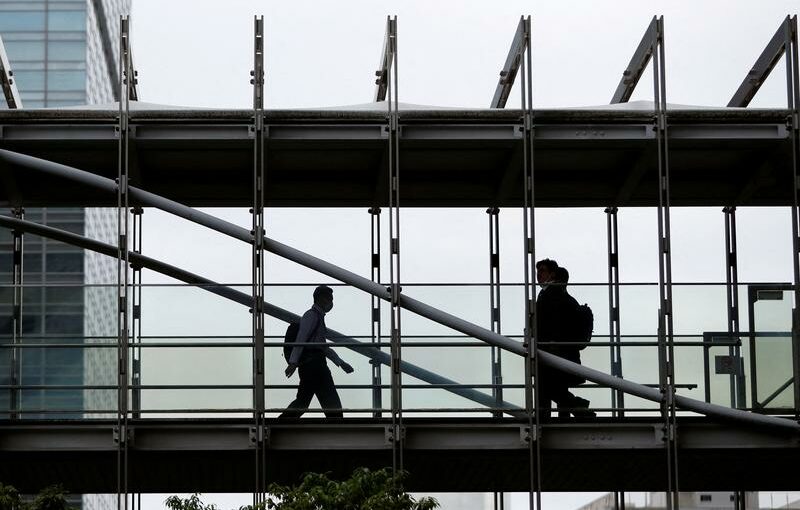TOKYO (Reuters) – Japan’s economy fell for the first time in two quarters in the first three months of the year as COVID-19 curbs hit the service sector and the Ukraine war and surging commodity prices created new headaches for consumers and businesses.
The decline presents a challenge to Prime Minister Fumio Kishida’s drive to achieve growth and wealth distribution under his “new capitalism” agenda, stoking fears of stagflation – a mix of tepid growth and rising inflation.
The world’s No. 3 economy shrank at an annualised rate of 1.0% in January-March from the previous quarter, gross domestic product (GDP) figures showed, versus a 1.8% contraction seen by economists. It translated into a quarterly drop of 0.2%, the Cabinet Office data showed, versus market forecasts for a 0.4% drop.
Private consumption, which makes up more than half of the economy, slightly fell, versus a 0.5% fall expected by economists, the data showed.
The weak reading may pressure Kishida to spend even more with upper house elections pencilled in for July 10, following the 2.7 trillion yen ($20.86 billion) in extra budget spending compiled on Tuesday.
Many analysts expect Japan’s economy to rebound in coming quarters, but the war in Ukraine and a slowdown in the Chinese economy dim the recovery prospects.
Despite easing coronavirus curbs, doubts remain about the V-shaped recovery, while surging energy and food prices boosted by the weak yen could cap domestic demand.
Japan’s export-reliant economy got little help from external demand, with net exports knocking 0.4 percentage point off GDP growth, as the weak yen and surging global commodity prices inflated imports.
That compared with a negative contribution of 0.3 percentage point seen by economists.
Capital spending rose 0.5% versus an expected 0.7% increase, following a 0.4% increase in the previous quarter.
($1 = 129.4400 yen)
Source: Read Full Article
